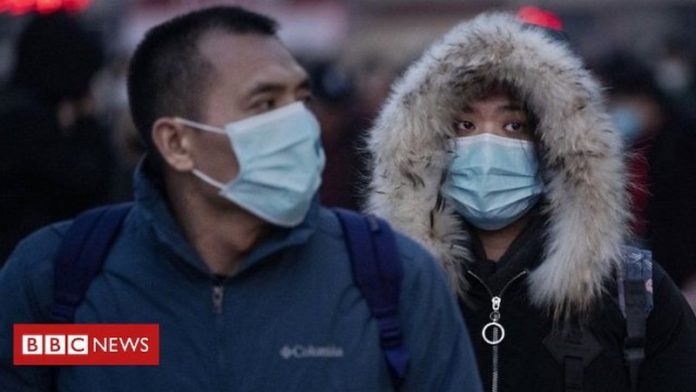Hundreds of hospital workers in Hong Kong have gone on strike, demanding the border with mainland China be completely closed to reduce the risk of the coronavirus spreading.
Hong Kong has suspended cross-border rail and ferry services, but health workers want a total border closure.
Authorities say closing the border completely would go against advice from the World Health Organization.
There have been 15 confirmed cases of the virus in the city.
“If there is no full border closure, there won’t be enough manpower, protective equipment, or isolation rooms, to combat the outbreak,” Winnie Yu, chairwoman of the newly-formed Hospital Authority Employees Alliance said.
Hundreds of “non-essential” medical workers went on strike on Monday. The union said frontline workers – including doctors and nurses – would follow on Tuesday if their demands were not met.
Hong Kong – which has a population of seven million – is part of China but retains significant autonomy. The border functions in much the same way as a normal international checkpoint.
As well as transportation closures, China has also stopped issuing visas for individual travellers to Hong Kong.
There have been more than 17,000 confirmed cases of the virus and 361 deaths in mainland China alone.
Outside China, there are more than 150 confirmed cases of the virus with one death, in the Philippines.
What are other countries doing to stem the outbreak?
Various countries have imposed travel restrictions to a varying degree.
– Denying entry to all foreign visitors who have recently been to China: US, Australia, Singapore
– Denying entry to foreigners travelling from mainland China: New Zealand, Israel
– Denying entry to foreigners who have visited Hubei province: Japan, South Korea
Other countries have seen their national carriers temporarily suspend all flights to mainland China. These include Egypt, Finland, Indonesia, the UK, and Italy amongst others.

